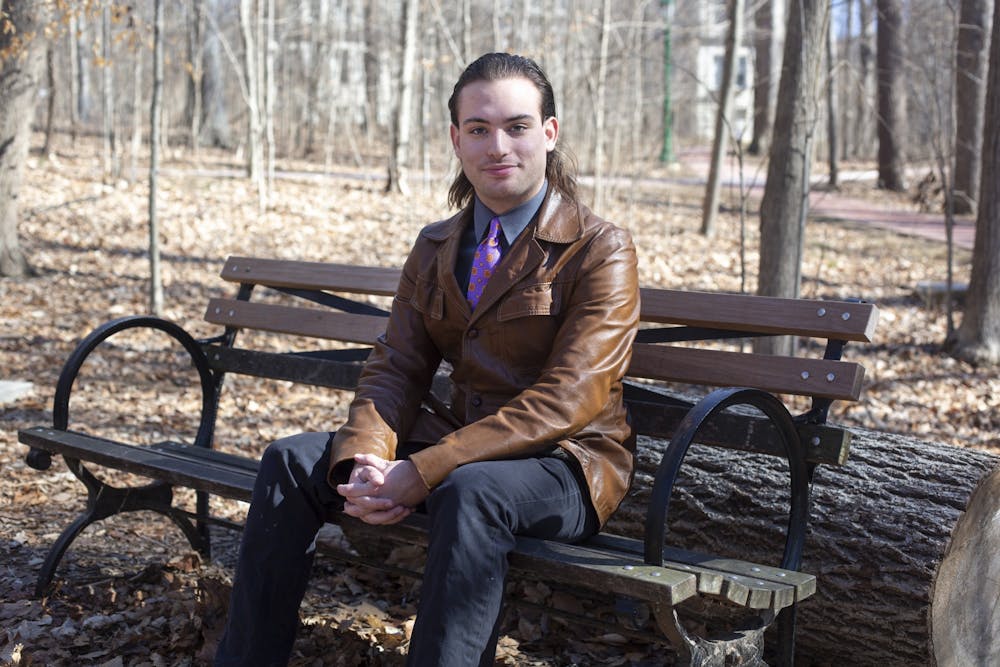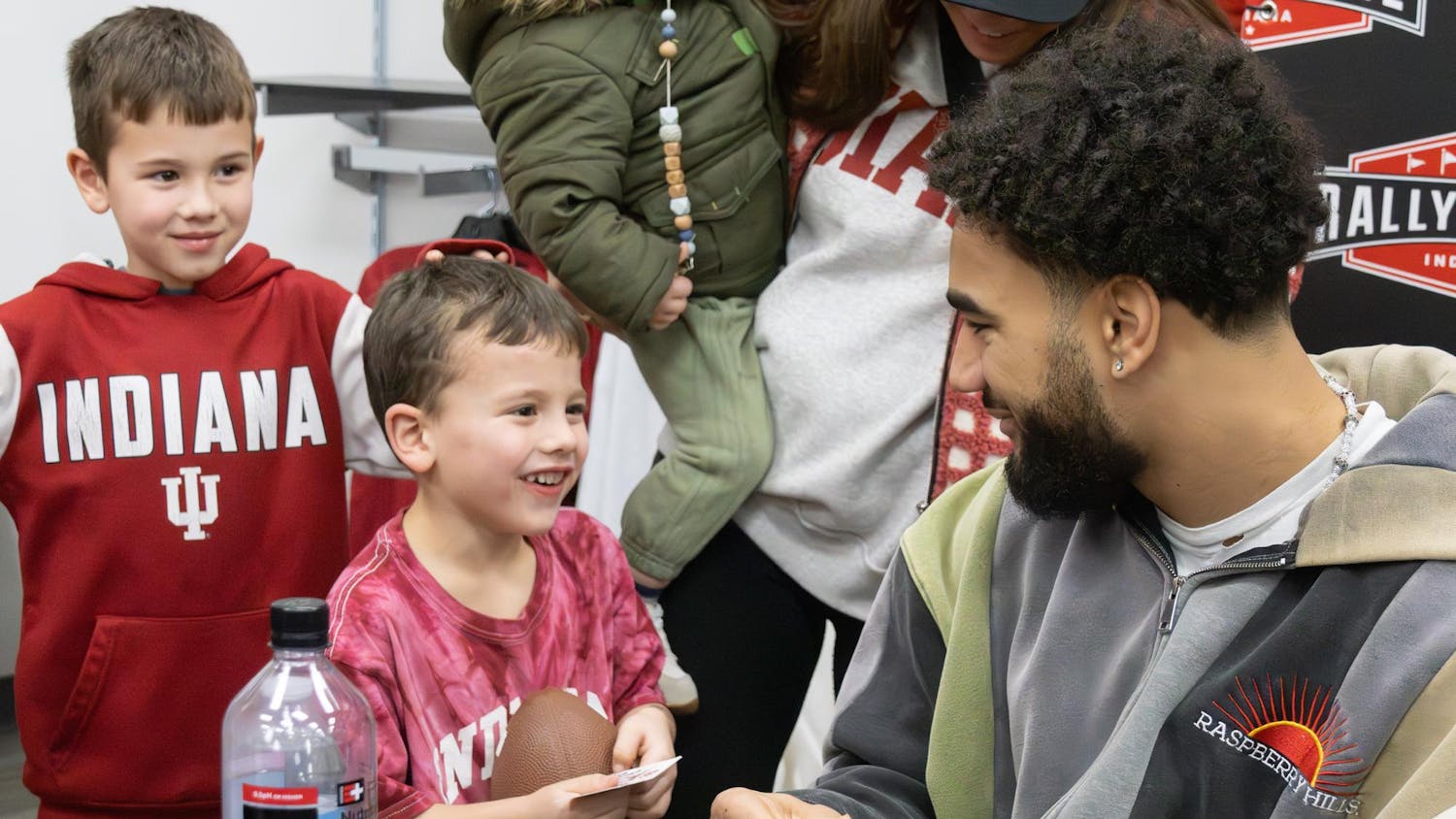When it all gets to be too much, freshman Ethan Vogel gets in his car.
He puts on his favorite music — usually classic rock, something soft but that permeates through the noise in his brain. He rolls the windows down and sticks his head out. Then he drives.
Sometimes, he’ll go to a state park, where he can feel the earth below him and be reminded he’s a part of it: human and grounded. But most times, he sets out with no real plan except to pick a road and follow it as far as possible.
As far back as he can remember, his initial reaction to difficult situations has been to amplify it within his brain: to instantly imagine everything that could go wrong — or remember everything that has.
In the car, however, he’s not thinking about the choices he’s made, or the betrayals he faced, or the bygone friendships he never thought he’d lose. With Phil Collins or The Eagles playing, the wind in his face, he’s able to lose himself in the miles, stretching toward a feeling of peace and away from a past that still gnaws at him today.
He drives to get away from the sadness, anger, annoyance, anxiety. Two years ago, he would have let it all consume him.
He knows better now. There’s no changing the past — what others did or the mistakes you made. The only option, he’s learned, is to move forward.
The COVID-19 pandemic gave many the extra time needed to process and reflect upon their lives with new understandings of past events, relationships and behaviors.
The pandemic brought unique challenges for young people, with some of the most significant periods of their lives marked by isolation and changes that came seemingly overnight.
Bloomington marriage and family therapist Deb Pardue said for many people, the experience of living through a pandemic is one they never thought they’d know. She said there were connections lost throughout the pandemic that digital interaction can’t replace.
“We took it for granted that we wouldn’t ever have to experience this,” she said. “That made it really hard for a lot of people. No one is alone in it.”
Local clinical social worker Teresa Foster said especially for young people, going through a pandemic taught them they can get through more than they imagined. She hopes that people will reflect on how resilient they were and use it to deal with other hard situations in the future.
“They were able to cope and get through it, even though it was hard,” Foster said.
IU sophomore Camryn Bronkella learned that to live with her ADHD, she must find support.
Another student, sophomore Kierra Compton, discovered she wants a more fulfilling lifestyle.
And Vogel, the freshman who drives to clear his head, learned that feelings don’t have to be forever.
Patience, self-improvement, how to ask for help when you need it: these are just a few things IU students have reckoned with since they first heard of COVID-19. As the world adjusts to the virus, they will carry the lessons they’ve learned with them.

Freshman Ethan Vogel thought the events of his past kept him a negative mindset. It took a year off from school and time spent self-reflecting to realize he wasn’t.
In the past, when he felt overwhelmed, he would sink into a hole of shame, hiding himself from the world. Today, he understands that while he can’t control how others perceive him, he does have the power to change his perspective.
During high school, pessimism felt ingrained in his nature. After being bullied his freshman year of high school, he made the switch from his private school to a public one.
While things improved for Vogel, he still carried feelings of bitterness and insecurity with him. Unsure of how to fit in, he often hid within the safety of the friend group he’d had since childhood.
Until he lost them.
It happened gradually. Vogel said he would often roughhouse with his friends, and while he thought it to be a joke, they became increasingly annoyed by his behavior. As the group also grew closer with a new friend, Vogel said they began to quietly distance themselves from him. He didn't understand why.
“All of a sudden, one day, they just disappeared,” he said. “I couldn’t reach any of them. It felt very strange.”
He tried reaching out multiple times, but his friends failed to open up completely. Vogel said he acknowledged his part in the problem, but got the sense that no matter how many times he apologized, it wasn’t enough. They wouldn’t let the grudge go.
Eventually, he pulled away.
Related: [Six students lost their home and many possessions to a fire, but it wasn’t their fault]
The falling-out broke off friendships of nearly nine years, but Vogel knows now that forcing relationships only makes others pull away.
“No matter how hard you try, you need to let go of control a little bit,” he said. “It’s impossible to dictate everything that happens all the time.”
He was accepted to IU during his senior year of high school, but took a gap year due to the pandemic. Without many friends to see and with COVID-19 spreading, spending so much time alone meant he eventually had to learn to be okay that way.
“It taught me to be more and more comfortable just being by myself without a camouflage to hide in,” he said.
Much of Vogel’s time during quarantine was spent analyzing what went wrong in the friendship, trying to understand how it all blew up. Putting himself in his friends’ shoes helped him see the situation more clearly. He believes people rarely make decisions without a valid reason — even if he doesn’t agree with it. This has helped him make peace.
Now in his first year at IU, Vogel is able to better manage his emotions. Feelings of insecurity and bad memories still taunt him, but when they do, he knows there are ways to cope — like drives with the windows down. Reacting to upsetting situations more calmly helps him work out why he got upset in the first place.
“I have just learned over time, especially through COVID, how to calm myself down,” Vogel said. “It’s the go-to-your-happy-place moments.”
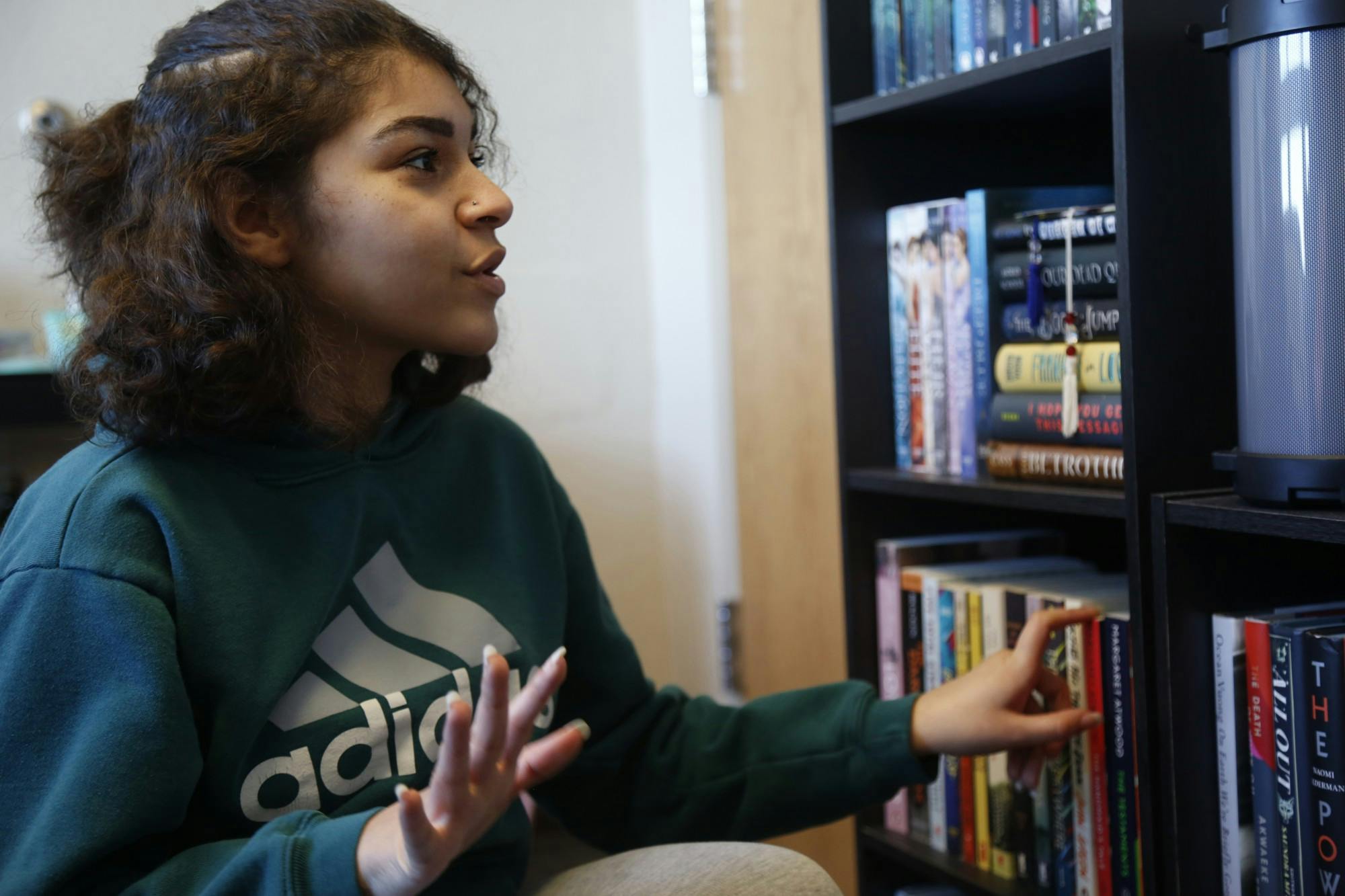
Sophomore Kierra Compton remembers struggling to get out of bed in the morning throughout the pandemic.
Although IU largely went online in 2020 and 2021, some students were still able to attend a handful of classes in person, giving them an initiative to get out of the house. But with all-online classes and only a couple of friends on campus, the joy of newfound independence Compton felt upon first arriving at IU was quickly replaced with loneliness and dissatisfaction. She discovered discontent, first in her college experience and, ultimately, in herself.
“I didn’t see a reason to get out of bed because I didn’t need to,” she said.
During the height of COVID-19, she said, the tendency to procrastinate she’s always wrestled with worsened. Struggling with virtual learning, she found it difficult to gather the willpower to complete assignments and fell behind.
Sitting in her room and staring at a screen for most of the day left her increasingly depressed and unmotivated. She struggled to eat and shower enough, and hardly went out aside from trips to the dining hall.
Related: [‘In prison, knowledge is power’: How publications are restricted in Indiana prisons]
For Compton, the pandemic served as a wake-up call in many ways. As the world returns to a semblance of normalcy, she’s assessed what needs to change in her day-to-day habits to better her mental health and reach her goals.
Now that in-person learning has returned, this semester she’s doing her best to stay organized. She’s also making more of an effort to maintain her physical health by eating better and exercising more.
“I want to live a better lifestyle,” Compton said. “I feel like I kind of should while I can or else it’ll catch up to me later on.”
Compton tends to pressure herself, always feeling the need to do more. She tries to strike a balance between mentally paralyzing herself with too much pressure while still recognizing where she could make better choices. She said she's spent a lot of time thinking about changing the way she lives, but not as much time actually doing it.
“When I say I need to read more books and stay on top of school, I think that’s just me trying to look out for myself and my health,” she said.
While her efforts haven’t completely paid off yet, she said, she’s hopeful. As her sophomore year nears its end and the COVID-19 pandemic improves, Compton has been trying to get out more. She’s joined clubs like the Student Cinema Guild, and she works on projects for her film major — she said would like to work in the Korean film industry or edit for YouTube channels one day.
In her free time, Compton strives to be more intentional about doing activities she truly enjoys, like watching movies.
“As a film student, it’s embarrassing the amount of movies I haven’t seen,” she said.
One of the biggest realizations she’s come to terms with since the pandemic, she said, is that she does need people to talk to. In the past, she’s struggled to keep in touch with friends and be vulnerable with her emotions. She’d often get anxious or too stressed to maintain relationships properly. But she’s realized managing her emotions is not something she has to, or can do, alone.
While she’s still looking for a close group of friends at IU, she’s hopeful it will happen soon.
Without the chance to focus on her mental health and what she needs, Compton thinks it would have taken her a few more years to come to terms with what she’s learned about herself.
“Being alone with myself and actually getting in touch with myself,” she said, “I think that definitely helped launch me into that realization.”
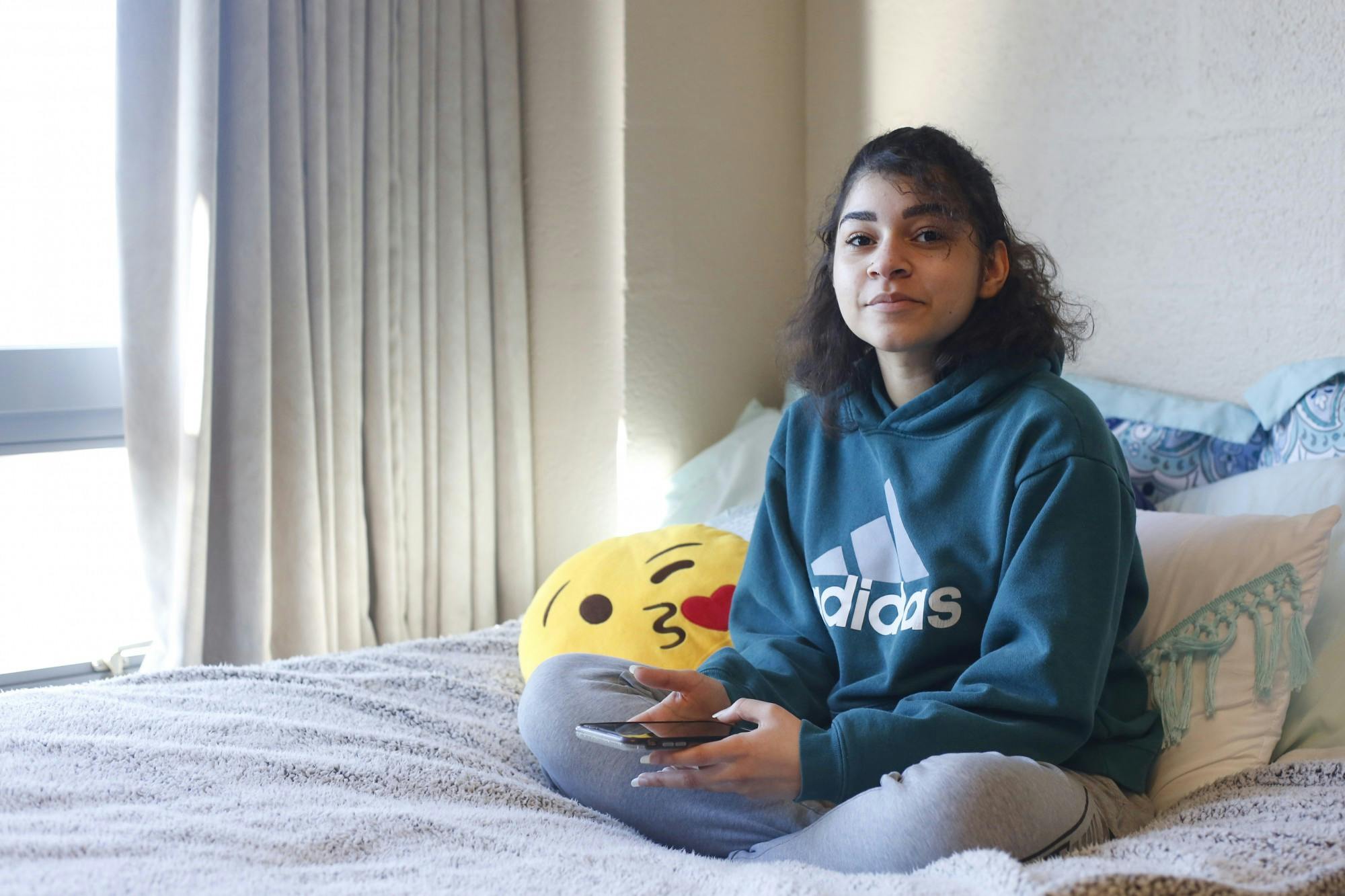
There were points during her freshman year when sophomore Camryn Bronkella considered dropping out or switching schools.
As a person with ADHD, she felt thrown into college. In high school, she'd never truly learned how to study. For the most part, she could wing it and do fine, she said. But college proved a different story.
Bronkella has spent the course of the pandemic learning more about the way her brain works and finding support to help her live and work with ADHD. While she's always known she was neurodivergent, quarantine redefined what it means for her.
While online schooling was challenging for many students, Bronkella said her ADHD made it especially difficult to manage her time, energy and resources. She said she often lacks a sense of motivation in her brain, which means it often takes a significant amount of energy to start a task. When she gets distracted, she can lose track of time; what feels like five minutes spent scrolling through social media, she said, can actually be half an hour.
Truly comprehending the material she studied was also a hurdle. Losing access to classroom learning meant Bronkella had to teach herself more than usual, which can be difficult for neurodivergent individuals, she said.
Last year, Bronkella wasn’t sure if she could handle life at IU. But this year, she's been keeping up with homework assignments and attending most of her classes. She said having in-person class again has helped — along with the realization she needed more support for her ADHD.
Related: [Sixty-five years after winning his Olympic gold medal, IU’s Greg Bell has barely slowed down]
Toward the end of her freshman year, her parents found a clinic in Bloomington where Bronkella started seeing a therapist and an executive function coach, who helps her learn strategies to improve areas she struggles in, such as organization, time management and maintaining focus. Ever since, Bronkella, her therapist and her executive function coach have been working together to figure out how Bronkella can work with her brain rather than against it.
During each session, Bronkella and her executive function coach work on finding effective methods of organization and time management. It’s been a long learning process, Bronkella said, but has majorly improved her ability to function.
She thinks about how things could have been different if she'd had that kind of support years ago. How years of frustration and feelings of defeat could have been avoided.
"I kept on learning about things and I was like, ‘Wait, hang on — this thing that I just thought was something that was wrong with me was actually just part of my ADHD,’” Bronkella said. "Just understanding it can make things better, because you know it's not just a character flaw."
Initially, coming to college was miserable, Bronkella said. She felt robbed of a typical college experience because of the pandemic.
“I don’t know what college life is like before COVID,” she said. “COVID started in a turning point in my life.”
But, Bronkella said, she also can’t ignore the opportunities it gave her. Without the pandemic, she might not have the resources she does today.
“Knowing those things helps me to connect the dots and makes things so much clearer," Bronkella said. "I feel a lot less bad about myself and the things that I do."
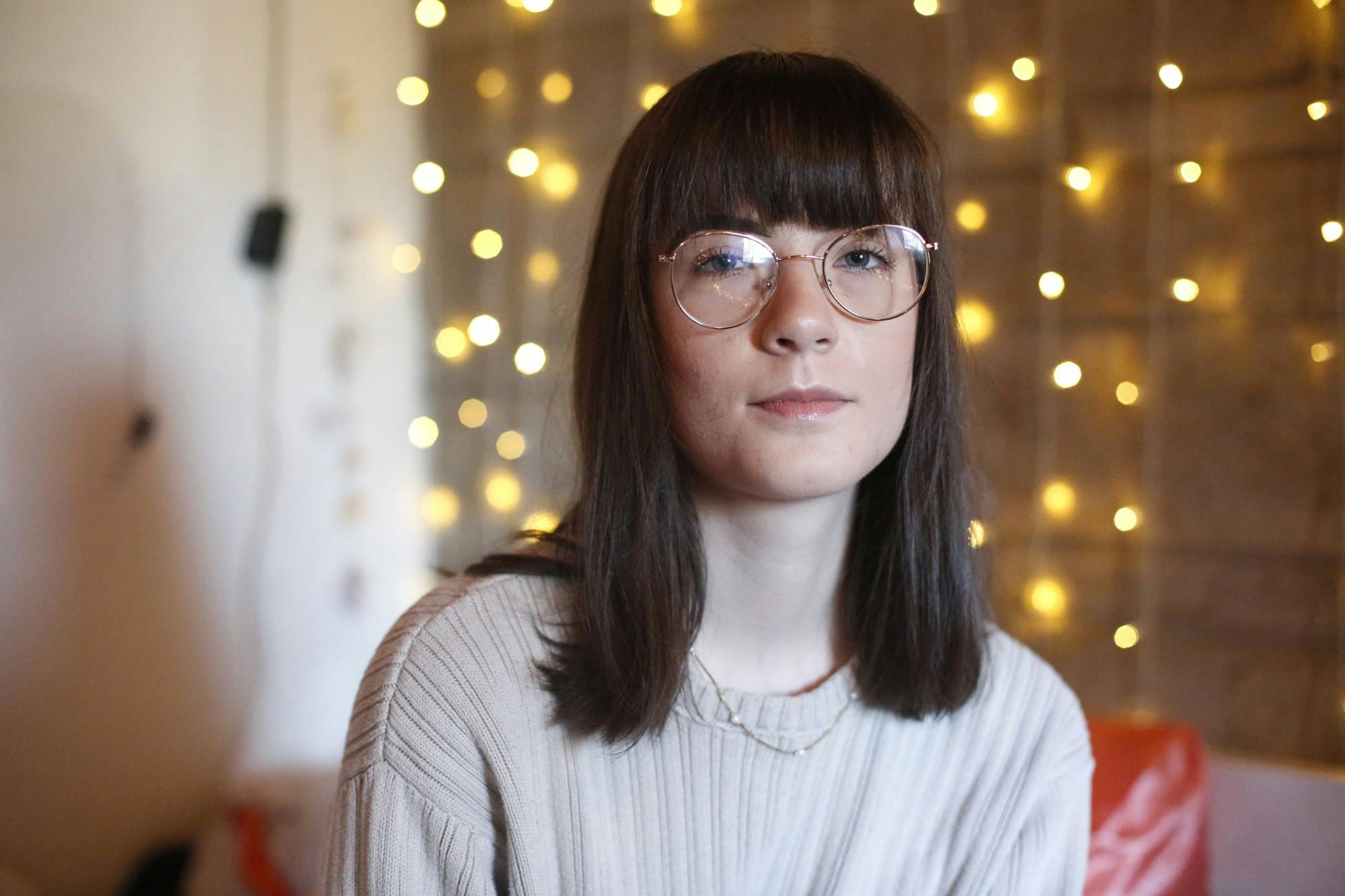
COVID-19 stole away parts of life that can never be regained. After two years marked by constant uncertainty, some might draw a line in the sand, never to look back at a period that for many was nothing but traumatic. For others, the chance to rethink and reinvent was a bittersweet push into their futures.
The loss of control and the life experiences people expected, all tinged with the question of where they would be now — who they would be now — if it hadn’t happened.
They look back on memories they could have had, situations that could have been different. They hope, at the same time, for a future that will be better.
"Everyone's life changed and we were forced to adapt to it," Bronkella said. "This opened our eyes to a lot of things about ourselves and about other people."

